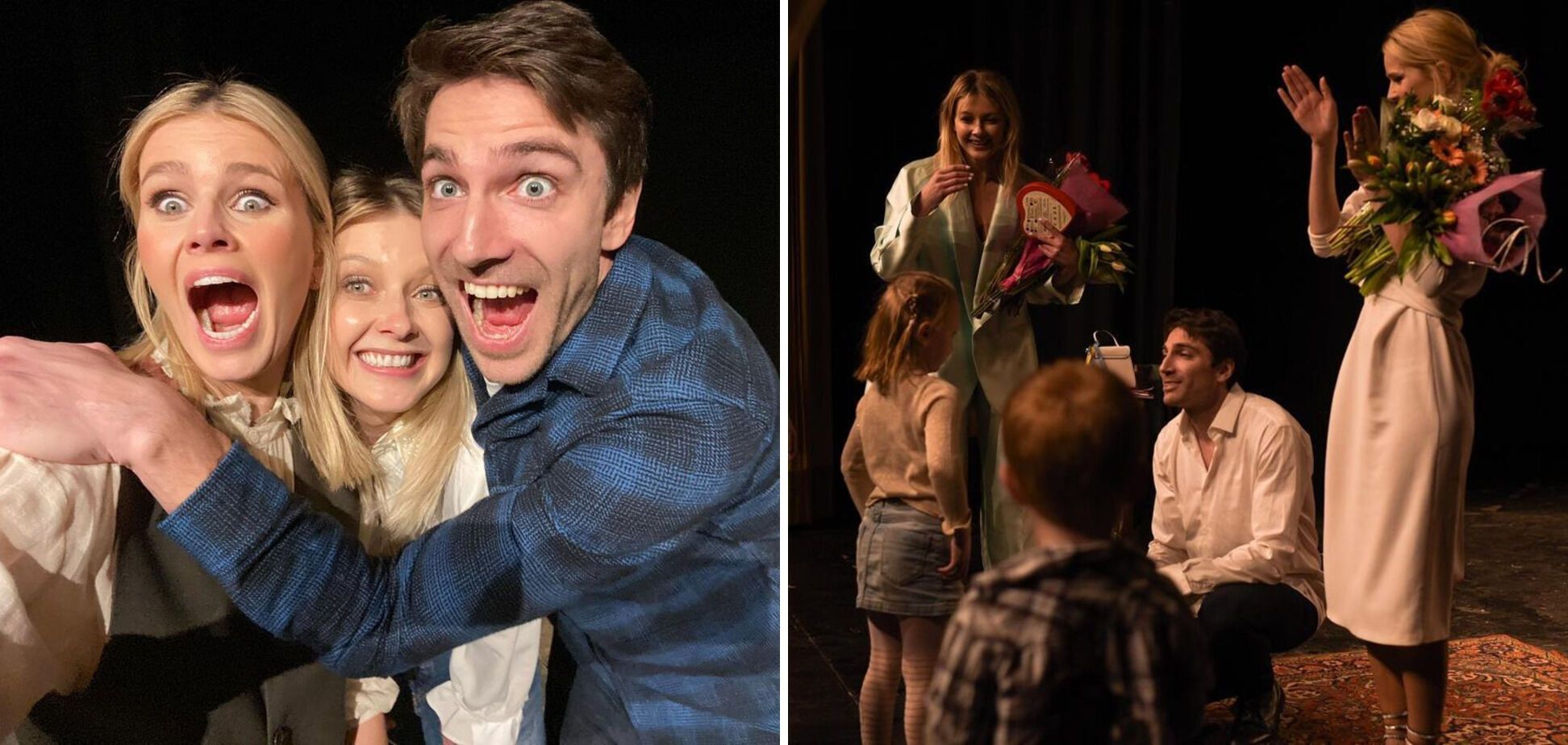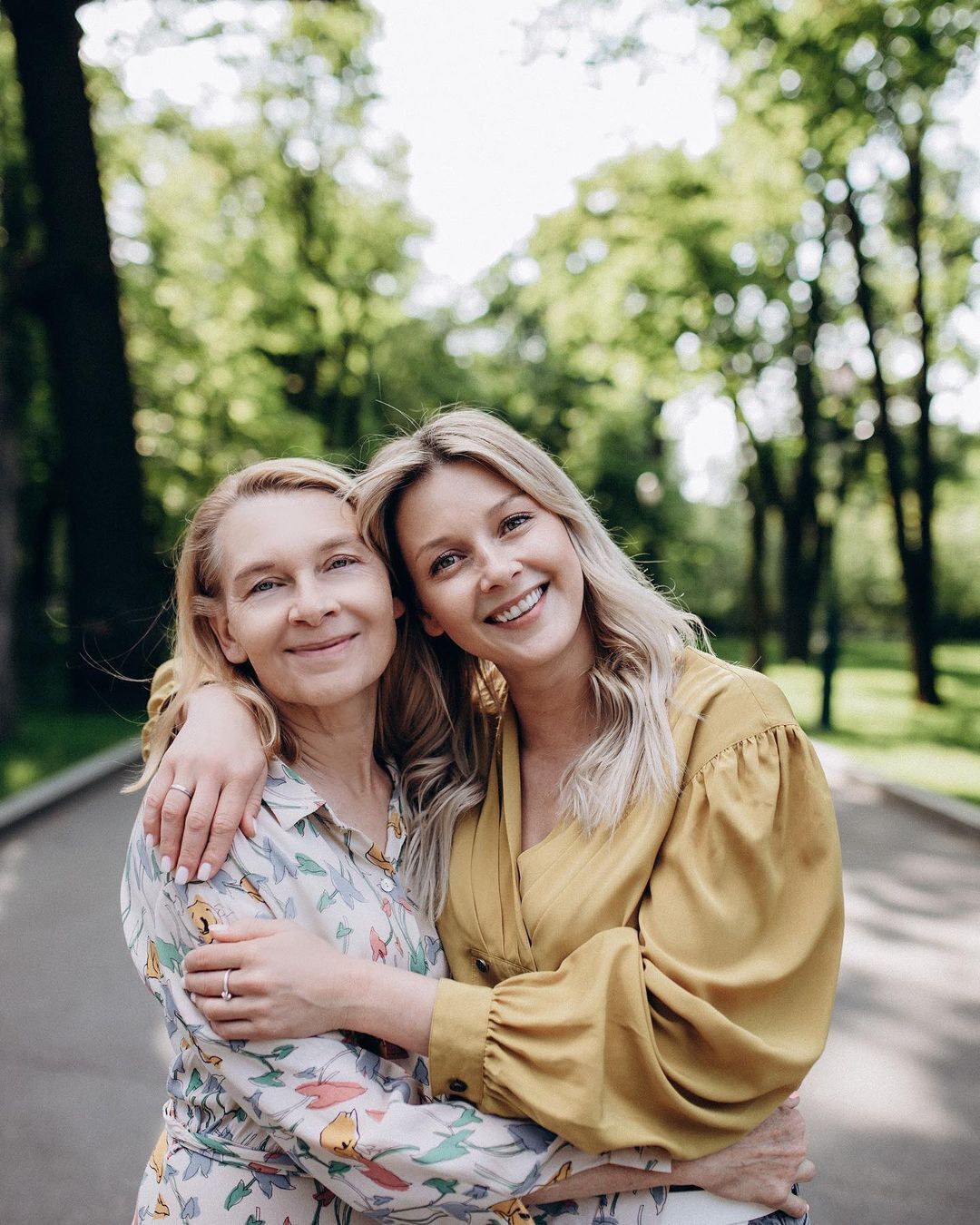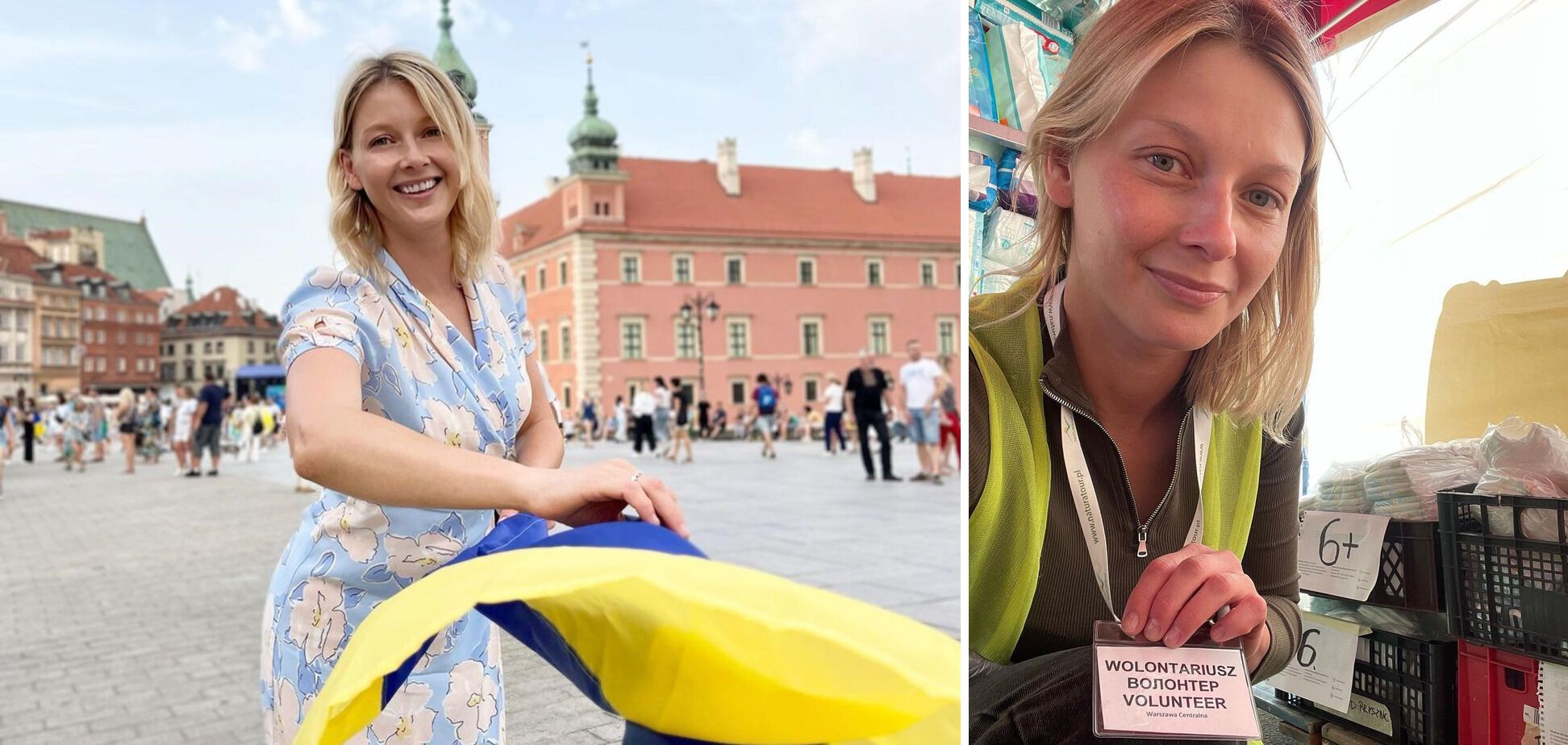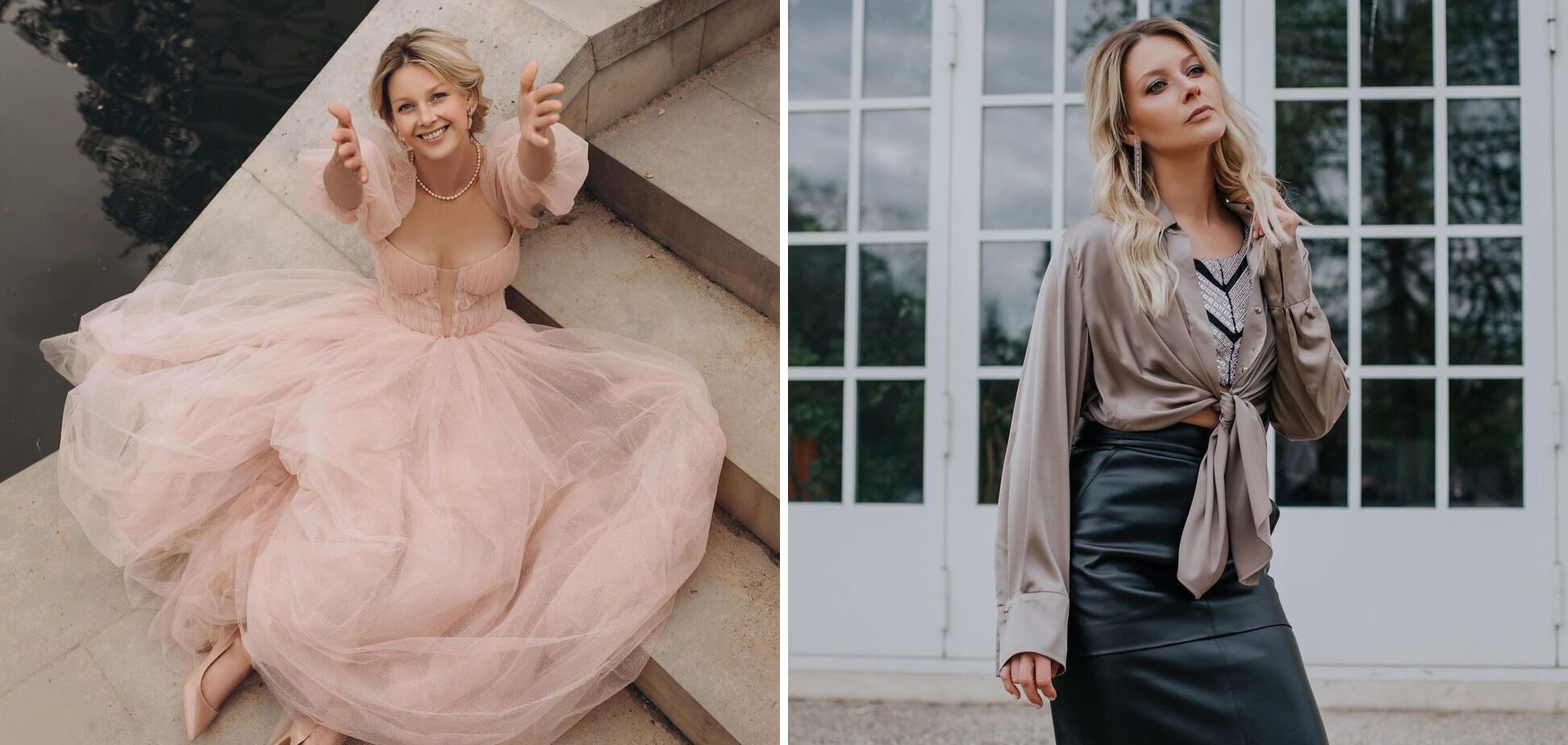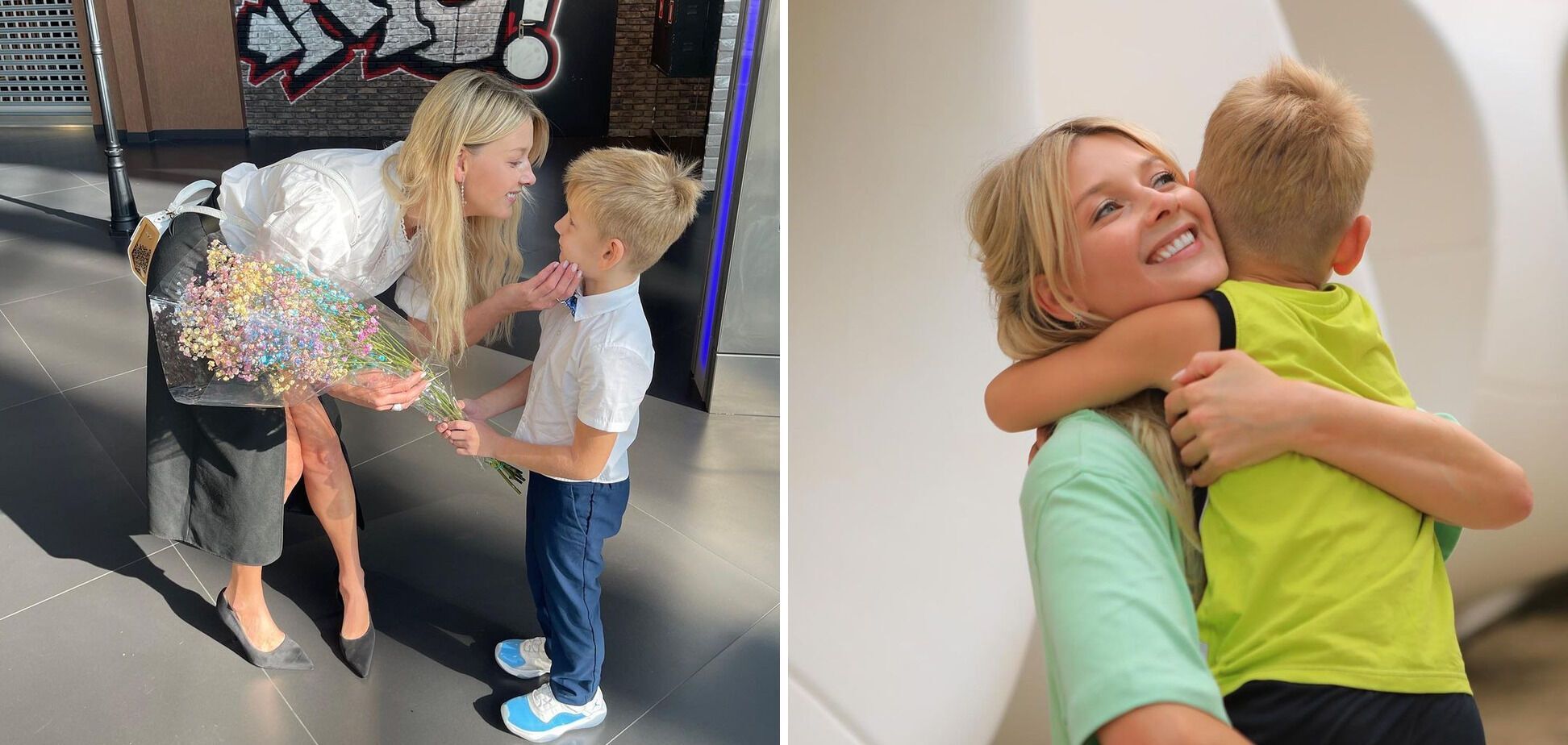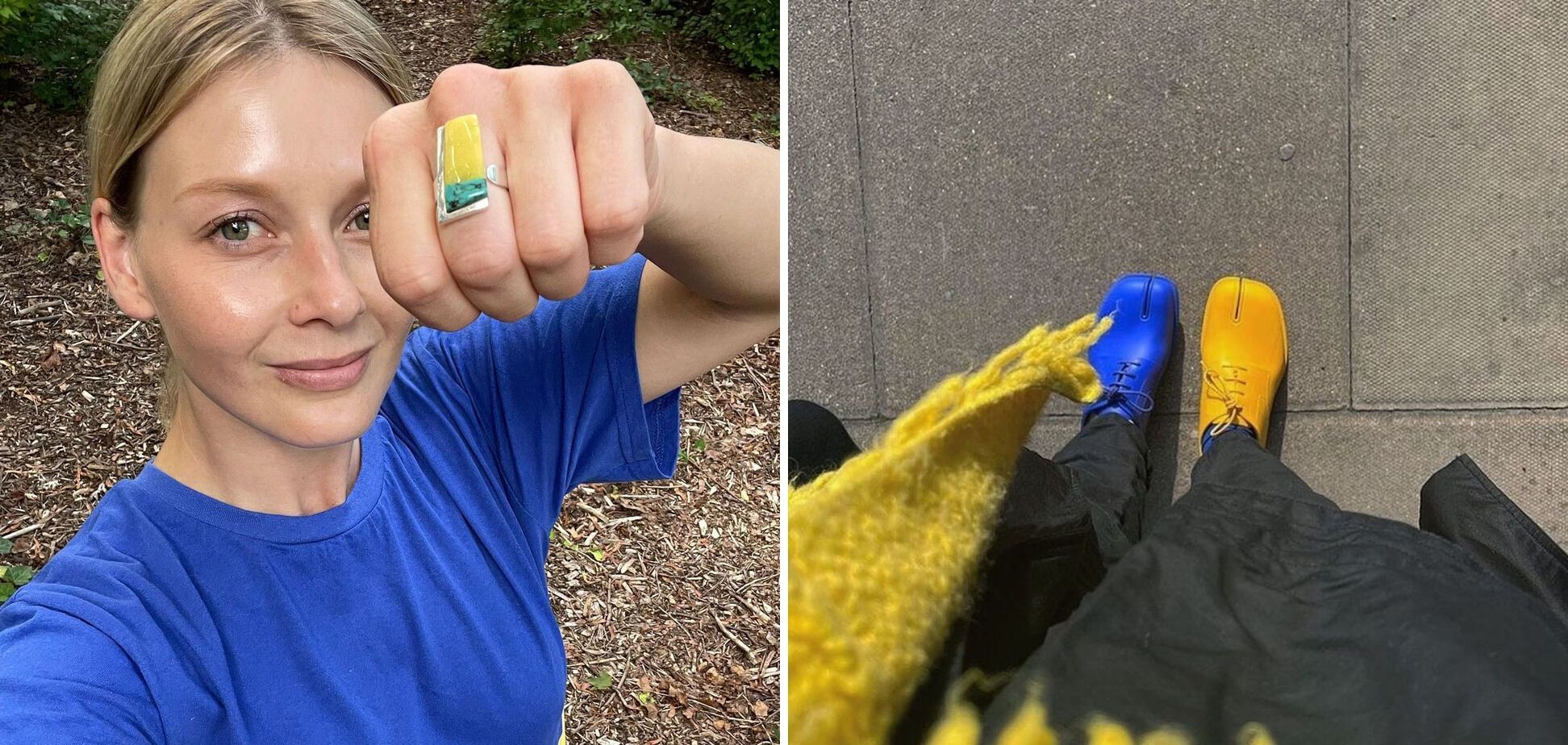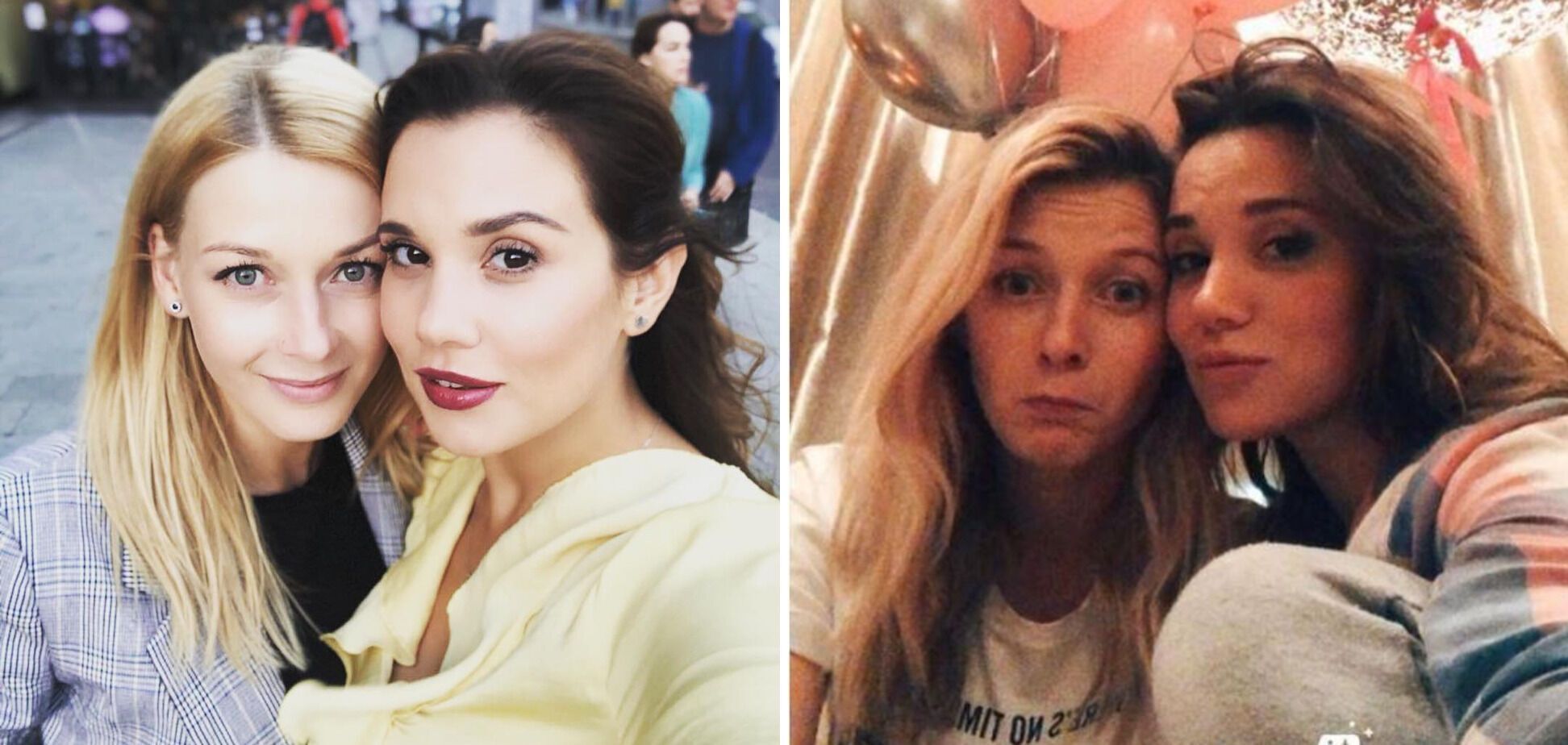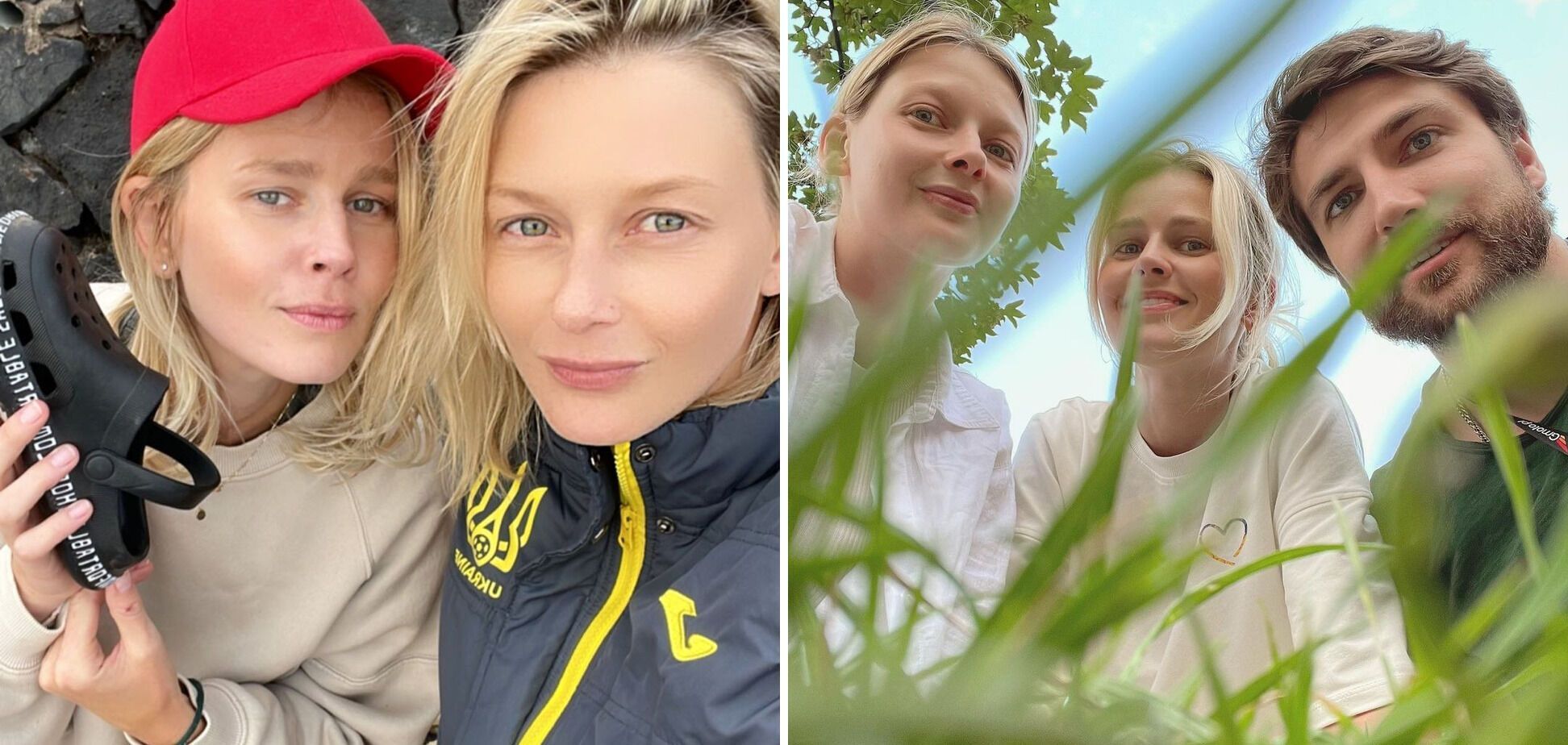Entertainment
"Many died under fire". Actress Lyubava Greshnova about fleeing Moscow, her parents in the epicenter of the fighting, and her friends who put up "z's"
For many years, Ukrainian actress Lyubava Greshnova lived in two countries, and after the start of the full-scale invasion, she broke all ties with Russia. In an interview with OBOZ.UA, the actress told how she fled Moscow with her husband and son at the beginning of the Great War and later faced complete indifference from her friends.
Liubava Greshnova also recalled how her relatives survived the occupation in the Kharkiv region. Her parents miraculously escaped from Kharkiv, where they lived in the basement at the beginning of the invasion while fierce battles between the Ukrainian Armed Forces and the Russian invaders were taking place.
- Lyubava, you could hardly find time to talk to us because of your busy schedule: you are touring a lot in Ukraine.
- Now we are on tour - every day a new city in Ukraine. In the evening we play a show, spend the night in a hotel, and in the morning we go to another city. "The Amazing Crazy" is a play that was created a year ago. I and actor Volodymyr Zayets play the characters. We also have a play called "Happy Day". By the way, we have a tour of America and Israel planned with it. There we play together with Kateryna Kuznetsova and my husband, actor Mikhail Pshenychnyi.
For some time, we have been touring Europe with these productions - the performances were charity events to unite the Ukrainian community and promote the Ukrainian language and culture. We were the first to take Ukrainian-language performances abroad and proved by our example that Ukrainian-language performances in Europe can sell out. Now we are starting to perform these plays in Ukraine.
- When you traveled around Europe, did you have a feeling that many countries sympathize with us, while some do not?
- We do not travel to countries where Russian propaganda is strong. For example, to Hungary. We had long negotiations with Israel. And with America, because the organizers were not ready for the Ukrainian language. In each country, the dialog began with the fact that we were persuaded to play in Russian. They said that the Ukrainians living there came a long time ago, when Russian was mostly spoken in Ukraine. The organizers were sure that the audience would not go to Ukrainian-language performances. We persuaded them, because we had no moral right to play in Russian. Moreover, we realized that the audience from Russia would also come, and we didn't want that. We don't want to entertain Russians, even good ones.
The Ukrainian language was our main condition. I persuaded them, convinced them that it would work. And it did. One country was a full house, the next, the third - we were confidently packing the halls. And then no one asked about the Ukrainian language. But there were other misunderstandings. When we came to Latvia with a performance, for example, we were given security. We did not immediately understand what this was about. They explained to us that Russians living there could easily disrupt the performance. Thank God, in our case, everything went perfectly - there were no problems. After the performance, we went to a coffee shop opened by our refugees from Lysychansk and Rubizhne. And they told us that almost every day drunk Russians who have lived in Latvia for many years come to them with threats and unpleasant conversations.
- Lyubava, do you believe that there are good Russians?
- I can tell you from my experience: out of my entire social circle in Russia - and I had a lot of friends there, people I considered close - I don't keep in touch with anyone now. But there is one family, a husband and wife, who left Russia to protest the war with Ukraine when the invasion began. They have no relatives in Ukraine - it's just their civic position. They left their whole life and future behind and went to support Ukrainians. Can I call them good Russians? Yes, I can. Just like Liya Ahedzhakova or Alla Pugacheva. But, unfortunately, I, like all Ukrainians, am disappointed in the vast majority of Russians.
- You met the Russian invasion of Ukraine in Moscow. On the eve of the terrible events, did you feel that something was coming?
- Unfortunately, I did not. Neither did many people around me, including my relatives from a village in the Kharkiv region that borders the Russian Federation. There, in that border village, no one expected this even the day before the invasion. When those troops were already visible, they didn't think anything of it: "Maybe we should go to Kharkiv?". And on the first day of the great war, we were occupied. I was supposed to be in Kharkiv with my parents at that time, because my mother had a heart attack a month before the invasion. I wanted to come to be with her, but it didn't work out because of my busy work schedule.
- How did your relatives survive the occupation?
- It is very difficult. But you know what I've noticed: people who have learned the most difficult things talk about it very simply. This impresses me even from an artistic point of view. It happens in movies, when emotionally complex things are shown in the frame as simply as possible. And it turns out to be art. And mine are so simple. My aunt says that she kept a diary because there was no radio or television, and the phones were dead because there was no electricity, so she wrote by hand what she saw around her to keep from going crazy. It happened that she no longer understood what day of the week it was, what day of the month it was.
In the village, everyone's cars were taken away, and my uncle had an idea - he disassembled the car into large parts and took it to the neighbors' sheds, burying the wheels. That's how he saved his car. When our village was liberated, he reassembled the car. My uncle was in prison for two months. They also took our 75-year-old neighbor, Grandma Maria, there. They wrote a denunciation against her. Locals who cooperated with the occupiers were giving up their fellow villagers to get into their houses and take some food. Grandma Maria had an apiary. My family survived practically on porridge, growing something else, exchanging it - the shops were not open. They came under occupation from the first day of the invasion, and they were liberated in late summer.
Mom and dad met the war in Kharkiv in Saltivka, a neighborhood that was shelled around the clock. They got out for a day, but it was a very big risk because no one knew whether they would be able to leave or not. Many people trying to evacuate were killed under fire. They left and have been living in Kyiv as IDPs for a year and a half now.
- Where have you settled now?
- Unfortunately, nowhere yet. Since there are very few films being made in Ukraine, our main activities are theatrical and touring. If we take a standard month, I live in Warsaw for some time, in Ukraine for another part, and travel around Europe for some time with performances. The last three months I've been on the road exclusively. It's very difficult, and I'm already dreaming of settling down somewhere, but so far there is no such possibility.
On the other hand, this is not a completely new life for me, because I have always lived in two countries. I always had Kharkiv, which I visited as soon as I had the opportunity. At the same time, I have always loved traveling, so life on wheels is a normal story for me. But I really want to buy a tea set and bake delicious things for tea. I dream of having my own house.
- What did you leave behind in Moscow?
- We had no property, only a car that was left in the middle of the street. Our belongings remained in the rented apartment. However, losing things is not the worst thing. And as life has shown, everything you have accumulated over the years may not be as necessary as you thought. Another thing was harder to bear - disappointment in people. I expected support from people I considered friends. I thought that at least they would write and call me. After all, we had been friends for so many years, worked together. But the best and closest ones never even asked how I was doing. And half of them even posted 'z's' on the social network. In the first two months, I couldn't pull myself together at all because of this. I can understand that for them it is total fear, but this does not make the disappointment any less. But I left it there and tried not to think about it.
- Can't someone give you your belongings?
- Everything that was important to us was taken away. We were left with just things for living. I now consider all this to be consumer goods, and that's all. I don't need anything from there. To be honest, for the last two years I have not thought much about the fact that my appearance should be refined because I am an actress. Sometimes my husband even scolds me: buy a dress. Good jewelry, branded clothes - I don't want any of that. Even when I go out, I force myself to wear a blouse and a skirt because I feel much more comfortable in sportswear. And I think it's the right thing to do while the war is on.
- I want to compliment you on your beautiful Ukrainian language. Do you speak it at home too?
- Despite the fact that I am from the eastern part of Ukraine, I have never had any problems with the language. When I hear stories now that someone cannot switch to Ukrainian, I honestly don't really understand what the problem is. My son often asks me to speak Ukrainian. He is a first-grader who goes to a Ukrainian school in Warsaw. It's a bit difficult for him because he is still actively learning both English and Polish. But my mother tongue comes first, because eventually we will return to Ukraine.
- How do you remember the time when you fled Russia?
- It was very scary. We left Moscow on the third or fourth day. The problem was that almost all destinations were closed, planes were flying only to Turkey and Egypt, and tickets cost fantastic money. Imagine how many foreigners - Ukrainians, Europeans, Americans - were trying to leave. We initially bought tickets that required us to cross the pedestrian border through Lithuania, but I got scared at the last minute because, as they said, they were going to have very long checks and interrogations. I know for sure that I could not lie that I was just traveling. You know, sometimes I think: how could our people stay there? It's very difficult for a person with a Ukrainian passport to live there...
We took tickets to Egypt. On the way to the airport, a patrol car stopped us, they wanted to take us to the police station when they saw our Ukrainian passports, but let us go. At the airport, I was almost fainting from fear, but we still flew out.
We waited for another six days in Egypt because there were no direct routes to Warsaw. And it was such a dissonance - I was sitting by the sea and watching all the news from Ukraine: everything was broken, rockets were flying. It was like a very bad movie... We kept in touch with our parents, and they held on. We were alone in the basement of our house at that time. They could only hide there, because there was no other way to survive. There is not a single undamaged house in Saltivka. Every house is hit, hit, hit, hit. Windows in almost all apartments were blown out. Russian troops entered Kharkiv through Saltovka, and our troops drove them out. Our house is located at the crossroads where fierce fighting was going on.
- When were you able to see your parents?
- Last winter, I came to Kyiv. I couldn't before: for some time I just had to get myself together, then I was looking for ways to earn money, because we didn't have much with us. I worked as a volunteer at the Warsaw train station for a very long time, collaborated with Kharkiv volunteers, with whom we did a lot of useful things. And then came our first performances. And now we see my parents more often than in my entire life since I was 16, when I entered the Karpenko-Kary Theater and left Kharkiv.
- Lyubava, you mentioned that Ukrainians should never have stayed in Russia under any circumstances, and yet your cousin, the Ukrainian actress Galina Bezruk, continues to live and work there.
- We have not been in touch since the beginning of the full-scale invasion. And I have no information about how she is living now. I do know that it was very difficult for her, she was worried. She couldn't make a choice - a child with a Russian passport, and her husband too. And he would not allow her to be taken away. I know that Galya loves Ukraine in her heart. I think it was a difficult decision for her to stay in Russia. I treat her with warmth and love, even though we do not communicate. We used to be family once.
-Why do you think it happened that you and actress Katya Kuznetsova left Russia , whileGalinastayed?
- My child and husband have Russian passports. Everyone in our family has Ukrainian passports. Katya Kuznetsova's common-law husband is Russian, but he has been living abroad for a long time. By the way, we did not know Katya before the invasion. Of course, we crossed paths on the set, but we were not friends. And now we are very close.
We have almost no one in Moscow now. The only one left is my son's nanny, who has Ukrainian roots. She has many relatives in Chernihiv. She also really wanted to leave, but she takes care of her sick mother, who is bedridden. We are in touch - she is sad, crying, talking to us. When we left, our dog stayed with her, we couldn't take it with us - it needed vaccinations. She was brought to us by Russian friends, whom she told us about. I was very worried that I would never see the dog again.
- In one of your interviews, you said that you never wanted to live in Russia. Why did you leave?
- At the time, I thought I was doing what I loved, and everyone in my Ukraine was happy with it. When we were traveling to Moscow in 2012, my colleagues shouted: "It's cool, let's go!" But my husband always said that we were just migrant workers in that country. I made such plans: I would shoot there and come home. Many people worked like that back then. It happened that we made seven flights in a week for work. Later it became technically more difficult, because the airplanes were eventually removed. But most importantly, we were hostages to the fact that almost everything that was filmed in Ukraine was done for Russian money. And in order to be approved for the main role here, you had to be an actor from Moscow. This was a requirement of our producers.
I spent the whole year before last in Kyiv, and I had a lot of projects. And at the end of the year, I had a conversation with some of our famous directors and producers. I said: "I want to stay - I'm filming in Kyiv anyway." And they said: "No, then we won't be able to film you."
- Many Ukrainian viewers remember you as the host of the first season of the show "Zvazheni ta Shchastlivi" (The Weighted and Happy). However, for a long time you remembered that work with resentment.
- Now I have no resentment, only gratitude. When you are 20, you can hold a grudge for a long time because you haven't read enough books yet. And now I realize that resentment is only making things worse for yourself. All resentment and anger only destroys you from the inside. And from the outside. You have to forgive and get on with your life, not live thinking about other people's actions.
Time helped me to realize this. Even now, if I have a conflict, I go through it hard, I tell myself: "Honey, you need time, at least a few months." I have always tried to live an active life. And when you weren't hired somewhere you really wanted to go, but a year later you had several cool projects, it covered the past failures. If I hadn't developed, stayed at home and suffered, it would probably have been hard for me to remember working at STB. Now I also have problems, like any living person, but I tell myself: "Well, okay. Let's look for something to compensate for it."
Also, read on OBOZ.UA an interview with the actress' mother Kateryna Tyshkevych, who gave her first interview about how her daughter was rescued: "There was a moment when I lost hope."
Only verified information is available on our Telegram channel OBOZ.UA and Viber. Don't be fooled by fakes.







